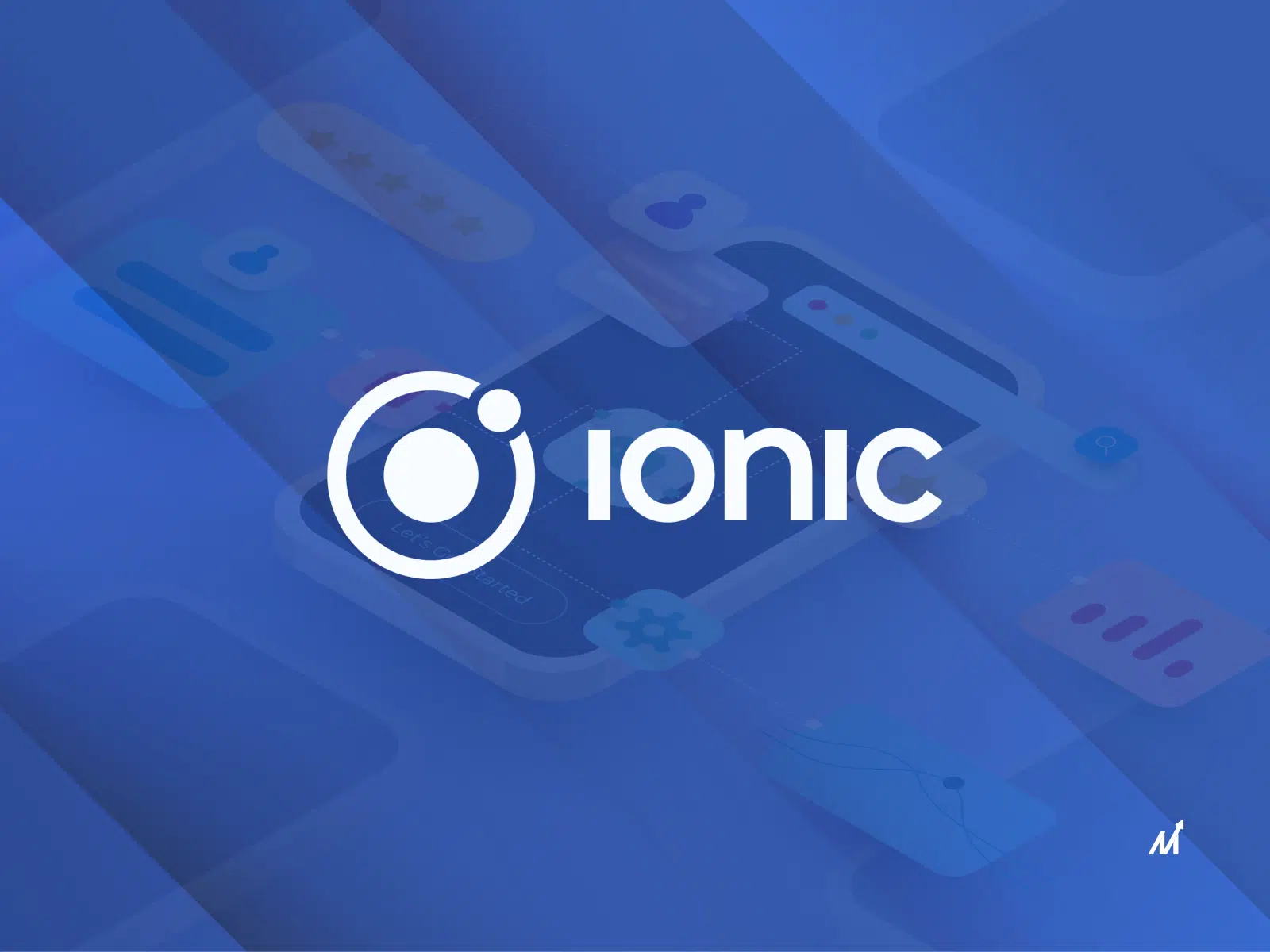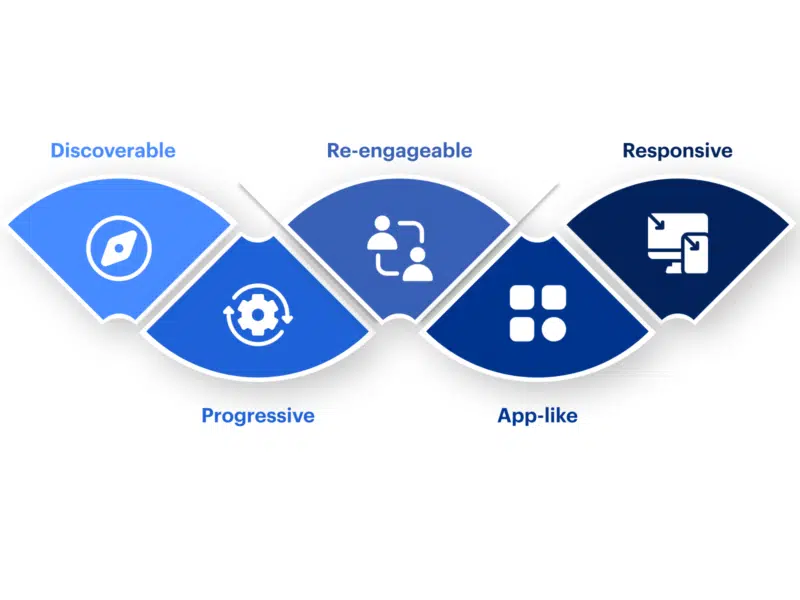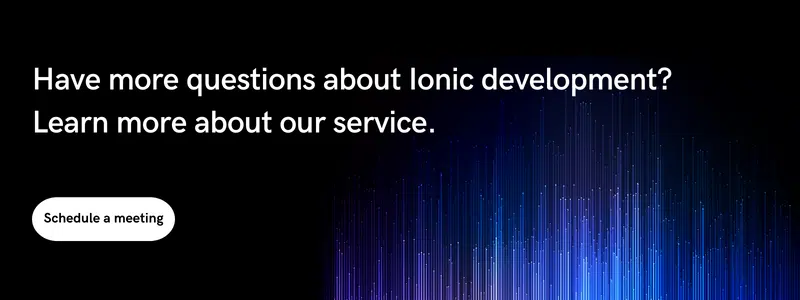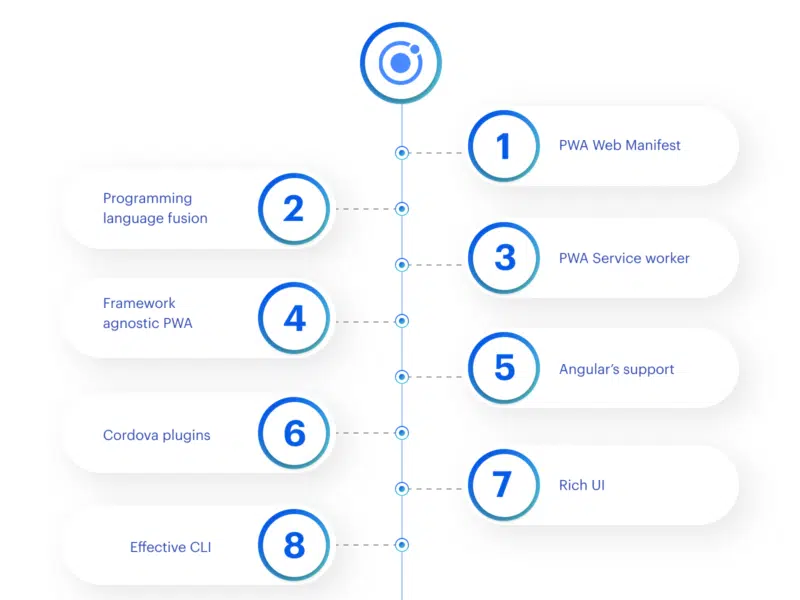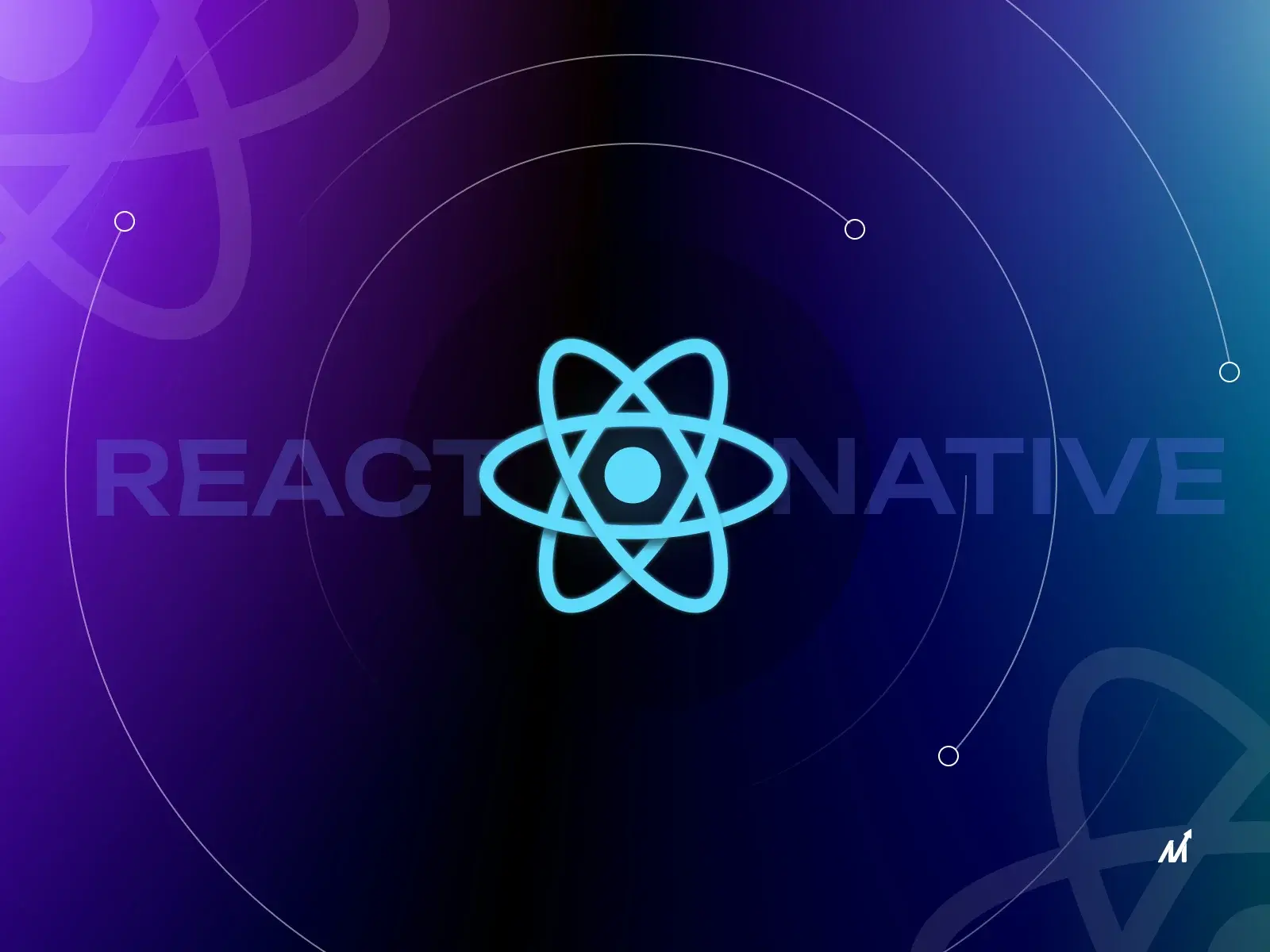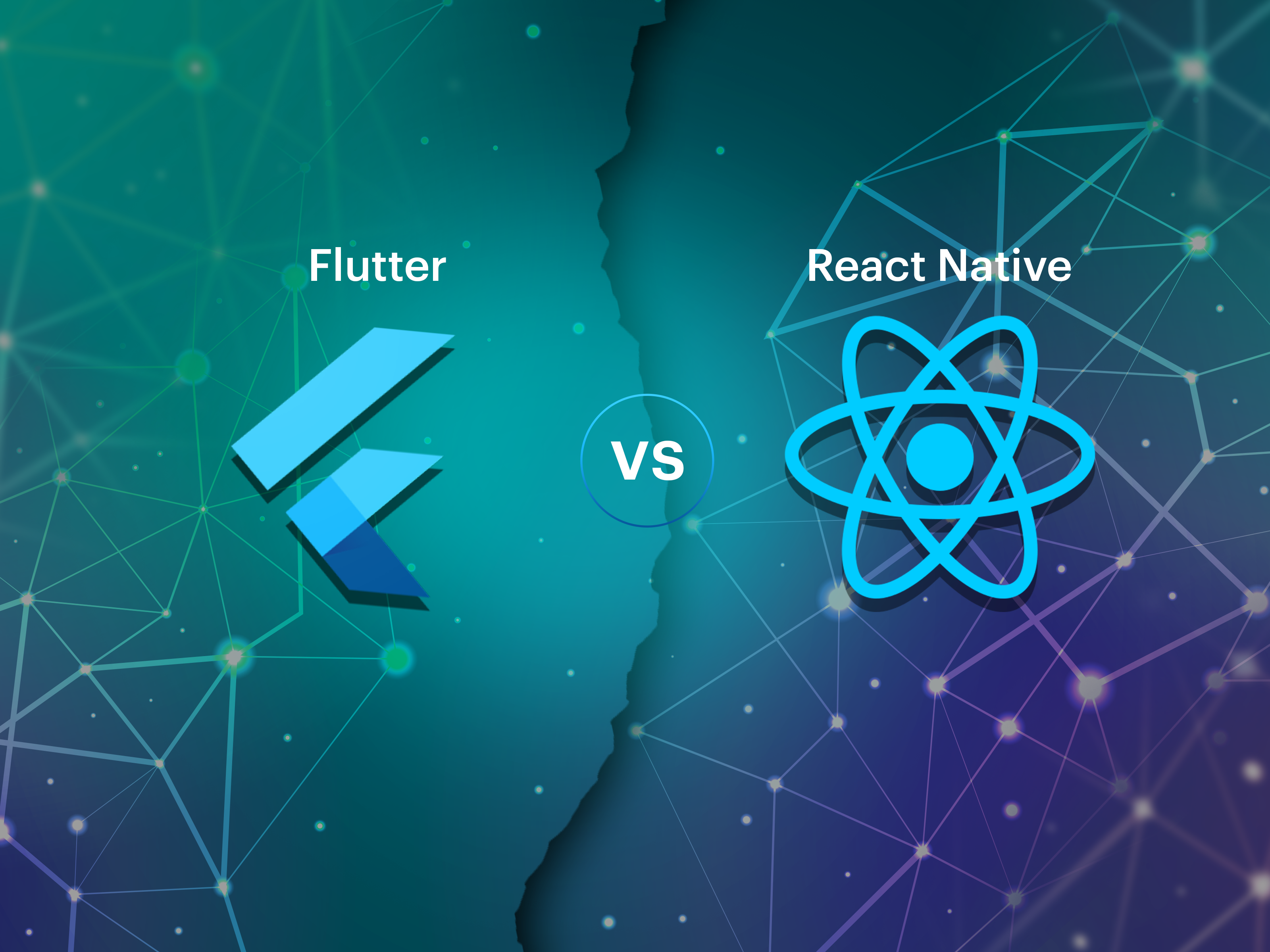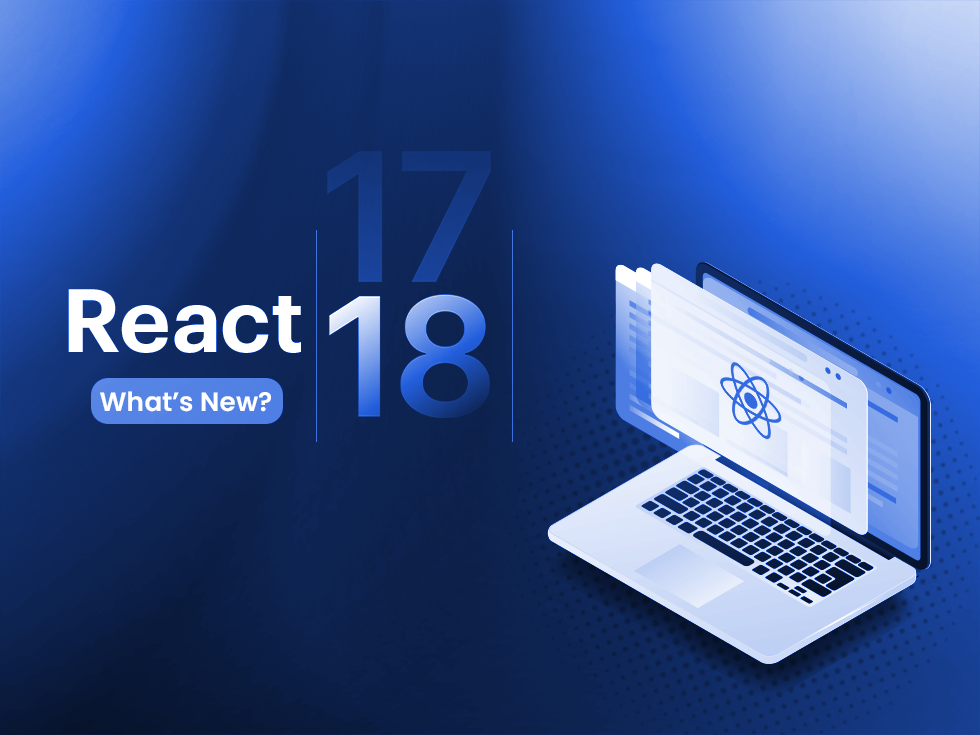The Ionic framework was developed in 2013 by a company called Drifty Co. Ionic developers had created over 1.3 million apps in less than two years. Ionic had become a ground-breaking technology all over the world by 2015. It never had to go back after that.
So, what exactly is this framework for? What makes it so well-known? Why is it one of the most acceptable options for quickly constructing progressive web apps (PWAs)?
Ionic is a fully open-source SDK appropriate for developing hybrid mobile applications. Ionic’s portfolio of services and tools for developers uses technologies such as HTML5, CSS, and SASS. It also supports Cordova plugins, typescript extensions, Bluetooth, and other mobile device features on over 110 devices.
Ionic is a fantastic framework for customizing design themes and aspects because it comes with pre-built components. As a result, developers won’t have to reinvent the wheel.
An Ionic developer can use these technologies to construct any mobile app and distribute it through native app stores. The best thing about Ionic app development is the progressive web apps.
Ionic framework and Progressive Web Apps (PWAs)
Ionic is, first and foremost, an open-source SDK. It’s also commonly employed in the creation of hybrid mobile apps. Sass, HTML5, and CSS are among the technologies used. Ionic’s universal web components may be utilized with any JavaScript framework, including Angular, React, Vue, and even without. It also includes AWS, Azure, and Firebase back-end connections.
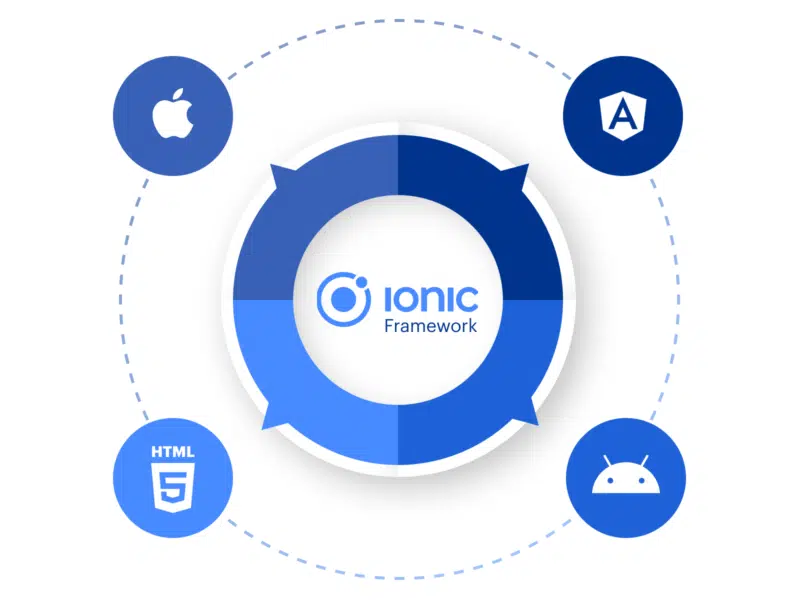
Ionic is ideal for all app development projects, but it is especially well-suited for Progressive Web Apps.
Progressive web apps bring together the most significant features of both apps and websites. It is mainly an app but can also be accessed via a web URL. To put it another way, you do not need to download and install it on your mobile devices.
You can use your web/mobile browser to access the app directly. The app also has an offline mode, which is quite significant. PWAs bridge the gap between the native mobile application and mobile web application.
Why use the Ionic framework for Progressive Web Apps?
As previously stated, a web app must adhere to the following principles in order to be classified as a PWA. Take a look at how Ionic Framework handles each one.
PWA Principles
1. Discoverable
Because of the W3C manifest and the extent of service worker registration can be identified as an “application” by search engines.
Ionic’s approach to it
From Ionic 4 onwards, modifications in the router’s behavior made it simple to find our apps.
2. Progressive
Because it’s created using progressive improvement as a basic premise, it works for everyone, regardless of browser.
Ionic’s approach to it
Ionic makes extensive use of cutting-edge web technologies and APIs. Despite the fact that some of them don’t operate in all browsers, Ionic still works. In this sense, Ionic is progressive.
3. Re-engageable
Using features like push notifications, it’s simple to re-engage.
Ionic’s approach to it
Ionic works well with a variety of other libraries and packages, making it simple to set up push notifications.
4. App-like
Because it’s based on the app shell paradigm, it feels like an app to the user, with app-like interactions and navigation.
Ionic’s approach to it
Ionic is a mobile-first framework, and its components are platform-agnostic (ios, material design).
5. Responsive
It works on any device: desktop, mobile, tablet, or whatever comes next.
Ionic’s approach to it
The versatility of Ionic UI components is well-known. Ionic makes it simple to create a responsive user interface.
Let’s see some numbers:
- With their new PWA, the Best Western River North hotel experienced a 300% boost in revenue.
- Even on a 2G network, Uber’s PWA is meant to be faster. On 2G, the main app is only 50K gzipped and loads in less than 3 seconds.
- The PWA for BookMyShow loads in under 3 seconds and has enhanced conversion rates by more than 80%. Furthermore, their PWA is 54 times smaller on Android and 180 times on iOS.
- Tinder reduced loading times from 11.91 to 4.69 seconds. Furthermore, the new PWA is 90% smaller than Tinder’s native Android app.
- Following the introduction of PWAs, Facebook’s engagement and download numbers skyrocketed.
Yes, some well-known names were named in the bullet points above. After that, everyone went to Ionic frameworks and PWAs. Starbucks, Lyft, Twitter, and Forbes, are among the companies whose progressive web apps have witnessed considerable increases in user engagement.
Want to learn more about Progressive web apps, read this: Explanation On Why Progressive Web Apps For eCommerce Is Important.
What are the primary features of the Ionic framework used for creating Progressive Web Apps?
Let’s look at what Ionic app development has to offer mobile app developers as far as essential features go and why you should use Ionic for Progressive Web Application development using web technologies.
1. PWA Web Manifest
The web manifest is a basic JSON file that defines the core parameters of the PWA, such as icons, app name, colors, screen orientation, and so on. It informs the browser about your PWA and how it should act when installed on the user’s desktop or mobile device.
2. Programming language fusion
The first and most essential reason to utilize Ionic is that it allows your engineers to use many programming languages simultaneously. The Ionic framework, for example, will enable them to create apps using HTML5, CSS, and JavaScript.
As an app development company, we can produce a fantastic UI for your target audience using the combination of these three languages. That is why you should choose Ionic, particularly if you want to create a visually appealing app. Ensure your app development team uses HTML5, CSS, and JavaScript with Ionic.
3. PWA Service worker
The service personnel are key to the increased experiences that PWAs can provide. They are small javascript helpers that act as a proxy between the user and the network, doing things like caching data (and deciding when and how to use the cached data – for example, to overcome a bad network connection), event triggers, pushing notifications, and organizing updates, among other things.
In other terms, a service worker is a script that runs in the background of your browser, independent of a web page, allowing you to access capabilities that don’t require a web page or user input.
4. Framework agnostic PWA
Ionic provides a PWA Toolkit that includes everything you’ll need to create progressive web apps without having to use a frontend framework like Angular, React, or Vue.
However, it relies on Stencil for compiling and building the app, Workbox for enforcing best practices and reducing boilerplate when working with service workers and cache strategies (both of which are critical when building PWAs), and Ionic Core for all of the beautiful UI components Ionic is known for.
5. Angular’s support
The angular framework, the most extensively utilized for designing highly interactive mobile applications, supports Ionic. Angular component API is at the foundation of the Ionic framework.
Furthermore, Angular.js’ HTML sentence structure extensions simplify adding additional functionalities to the app.
6. Cordova plugins
The Ionic framework supports a wide variety of plugins for development. It comes with a Cordova plugin that lets designers provide users access to different components.
Cordova accomplishes this by using JavaScript to call native code. It also adds platforms, runs them, and assists mobile app creators. Ionic requires a native partner because it is an HTML5 framework. Cordova fulfills this job by guaranteeing that the app runs natively.
Ionic also includes several Cordova plugins. They make it easier for your app developer to use native functions such as Bluetooth, camera, and GPS.
7. Rich UI
Pre-built segments are included with Ionic, allowing you to customize parts and design themes. It is based entirely on SASS UI and has a wealth of functionality for creating strong and interactive apps with a natural appearance.
8. Effective CLI
Finally, Ionic’s extremely robust CLI makes it the most exemplary framework for creating progressive web apps. Ionic’s CLI allows your developers to develop, write code, inspect, and push apps to any platform.
The CLI of the Ionic framework provides developers with the functionality seen in native SDKs. It even has a built-in development server and various debugging tools.
Read this to learn more about Ionic Framework: Ionic Framework With Its Pros And Cons: The Essential Guide.
What are the PWA development alternatives to Ionic app development?
Yes, Xamarin and React Native are two viable options.
Xamarin
Microsoft supports this framework for creating cross-platform mobile apps that leverage native libraries and C# wrapped in a.NET layer.
React Native
With React.JS and JavaScript, this framework allows you to create near-native mobile apps.
Conclusion
To summarize the scenario of creating a PWA in the Ionic Framework, it is clear that Ionic app development is the most appropriate source and platform for doing so. Because we know how flexible this platform is when it comes to constructing and using web apps, it is highly advised that you utilize it to create web apps with no boundaries or restrictions.
It not only provides an open-source platform, but it is also incredibly cost-effective to create any Ionic application on top of it. We can simply deduce from all the benefits and advantages that PWAs should be developed on the Ionic Platform.
As a skilled Ionic app development company, we can provide a competitive advantage to business owners.
FAQs
1. Is Ionic good for PWA?
Ionic’s versatility will enable you to create progressive web apps in either scenario. As I previously stated, Ionic incorporates most elements that make up a PWA (Responsive, App-like, Discoverable, Linkable).
2. Can Ionic be used for web development?
Using specific CSS and responsive elements makes Ionic the ideal solution for your next web application, PWA, and mobile app! It’s already amazing to have one code base that can be converted into a native mobile app and be pushed to the web!
3. Is Ionic good for app development?
Ionic is the preferred choice for app development for many developers because it combines Apache Cordova with Angular. It offers resources for creating high-quality hybrid mobile apps that can operate on Windows, Android, and iOS, including HTML5, CSS, and SaaS.

